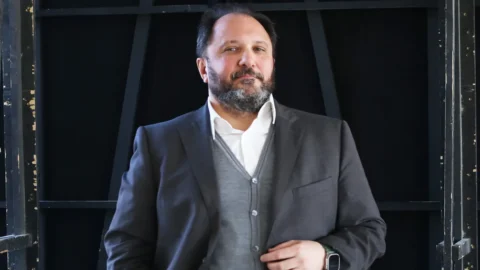The Ilva of Taranto is one step away from closing. The tug of war between the government and the company is degenerating into a real brawl which certainly does not favor the search for a positive solution to the age-old affair. On the question and more generally on the policy to be implemented for the redemption of the south, we interviewed Claudio De Vincenti, former undersecretary to the Prime Minister and then Minister for Territorial Cohesion and Southern Italy, not only to clarify the positions in the field, but also to outline, rationally, a possible positive solution to the crisis of this large steel company that almost all the technicians and politicians believe is fundamental for employment in that area and for the entire Italian industry based, as is known, on mechanics.
Let's start with the casus belli, ie the question of the so-called penal shield which arouses so much controversy within the government and in public debate. Two days ago in the Corriere della Sera the illustrious jurist Giovanni Maria Flick (who for a certain period was considered not hostile to the M5S) clarified that such a measure is needed because art. 51 of the Penal Code is not enough to protect entrepreneurs who start an environmental remediation plan according to what was agreed with the Ministry of the Environment, on situations inherited from past managements. How are things in his opinion?
"Considering that I am not a jurist, I must remember that we have seen in various companies that were implementing environmental remediation plans according to the indications agreed with the authorities, that the managers were investigated on the basis of the fact that the factory continued to pollute for a certain period . We are faced with a situation such as paragraph 22, with a juridical tangle in which an entrepreneur, while rigorously applying the prescriptions indicated by the Hague (Integrated Environmental Authorization issued by the Ministry), could equally be prosecuted on the basis of the consideration that the plant continues to pollute for a certain time. In fact, environmental remediation requires a certain period of time and The Hague sets precise time and investment stages, authorizing the factory to continue production to keep the company alive, allow it not to lose the market and favor the continuity of jobs of work. We are therefore faced with a conflict between two rules which must be resolved with what is improperly called a "criminal shield", but in reality it is a question of giving certainty of the right to the investor and it would be good to generalize it to all operators, not just all 'Ilva, who should find themselves in similar situations”.
ArcelorMittal is however accused of making excuses, such as the failure to confirm the "penal shield" to implement its strategy of disengagement from Italy which, according to some, was its true intention from the beginning. Then there are the sensational and unexpected announcements such as that of the five thousand redundancies or that of the program for closing the blast furnaces by January 15, which made the unions and politicians cry out for blackmail.
“First of all, let's clarify that as regards the shutdown of the blast furnaces, Mittal is totally wrong. In fact, even if his reasons for withdrawing were valid, the French-Indian multinational which currently leases the plant would be obliged to hand it over to the commissioner's management as it had it about a year ago, i.e. with the plants in operation. I don't know what Mittal's strategy is, but nevertheless at the time of presenting the offer, its technicians judged the Taranto plant technologically among the most advanced in Europe and potentially capable of operating efficiently. Then it is known that in recent months Mittal has made investments to reduce pollution, starting with the coverage of mineral parks which can already be seen in an advanced state of implementation. Furthermore, the company has started the sale of other plants in Europe to comply with the conditions that had been placed on it by the European Antitrust for the acquisition of Ilva. Of course, the steel market has plunged into a very serious crisis due on the one hand to the persistence of the tariff war between the USA and China which has prompted China to direct part of its production to Europe, even bypassing Community tariffs in various ways, and on the other to the crisis of the European engineering industry. But even more so in the face of such a difficult situation, the government should create an environment of stable and reliable rules to better defend the investments of its industry".
In short, we find ourselves in a tangle in which everyone has a share of responsibility. And how could we get out of it without irreparable damage for the South and for the entire Italian industry which without Taranto would have to bear higher costs and uncertainty in supplies, as claimed just yesterday by the president of Duferco (large iron and steel operator) and former president of Federacciai ?
“In addition to the shield, we must consider that last spring the Ministry of the Environment accepted the request of the president of Puglia, Michele Emiliano, to review the Hague, that is the authorization under which Mittal was operating to carry out the recovery. And the review process isn't over yet, leaving the company uncertain about what to do. So in the first place it is necessary to proceed with a clarification within the Government on the objectives to be pursued and then immediately restore the penal shield and conclude the process of the review of the Hague. At that point, with a clear legal framework, a negotiating table can be opened with the company to face the economic problems while at the same time continuing technological and environmental investments. Of course, the hot area must be safeguarded without which the Taranto plant would be greatly reduced, putting a large part of the current employment at risk. Overall, our politicians should bear in mind that the closure of Taranto would be a tragedy for the city which certainly does not have many other productive activities and from the point of view of pollution it would be a much worse catastrophe than that of Bagnoli where, after thirty years, the environmental remediation has not yet been done”.
The Ilva crisis in Taranto is somewhat emblematic of the more general crisis in the South. There is a lack of stable and clear rules and a strong idea of the policies to be implemented to stimulate growth is missing. Thus it is preferred to give voice to the malaise through controversies on the abandonment of the South by the government or on the selfishness of Northern Italy. The Minister of the South Provenzano has stirred up a controversy with Milan arguing that the Lombard metropolis is growing by subtracting financial and human resources from the rest of Italy and is not returning them adequately to other areas of the country.
“The same minister in a subsequent intervention clarified his thoughts better, stating that we were talking about theoretical analyzes and that he did not intend to impose a brake on the development of Milan. However, I think it is wrong to criticize a city that is proving to be capable of innovating and growing. Instead it should be appreciated and, if possible, imitated. Economic theory tells us that agglomeration economies exist which explain why in certain cases, such as that of Milan, cumulative growth processes are triggered. The problem of economic policy is not to block these processes, but to ensure that they become driving forces for the rest of the country. It is up to the government to create positive externalities in the other areas of the country that attract investments and spread the effects of the growth of the more advanced areas throughout the territory”.
For the Mezzogiorno, the Merit Meridione Italia association has promoted a manifesto that aims to be somewhat the flag of a southern culture that wants to measure itself against the challenges of modernity. There are still several intellectuals in the South and just as many politicians who limit themselves to a claiming complaint with respect to the government in Rome and the other regions of the North. Yet in a recent study, two economists Antonio Accetturo and Guido de Blasio argue that the aid policies introduced after the closure of the Cassa per il Mezzogiorno have not allowed the South to bridge the gap with the rest of the country and indeed, at times have proved counterproductive. As Nitti already said over a century ago, the bad currency of aid attracts the energies of the smartest and drives out the good one based on the initiatives of those forces who want real progress and not just subsidies.
"I know that study entitled "Dying with aids" to which I have addressed some criticisms both because it stops at 2013 thus neglecting everything that happened in the following years, and for the evaluation of law 488 which in my opinion had better effects than those illustrated in the volume. Overall, however, I fully agree with the criticism of the way in which the State, after the end of the extraordinary intervention and until 2013, has often distributed resources limiting itself to distributing them among the Regions and renouncing its guiding and monitoring functions i.e. his management responsibilities. In doing so, it has allowed the Regions to misuse resources without producing development, in many cases causing phenomena of deterioration of the social capital up to the spread of corruption. The policy of the centre-left governments in which I participated between 2014 and 2017 was instead that of aiming for a stronger State-Regions interaction by reserving a direction, solicitation and monitoring function to the central power. In this way, the aim was to unblock infrastructure investments, often already financed, but stranded in procedural complications, and the pacts for the South were implemented which in just over a year and a half have activated around 9 billion jobs, i.e. construction sites open or awarded service contracts. Some argue that these Pacts have not been successful. In reality, these processes would have needed a continuous stimulus from the administration and central politics. And instead the previous government let go of things which, as often happens in our country, thus tend to stop. We then focused on direct support for private investments through certain, automatic and rapid incentive tools. Tools that have bypassed political and bureaucratic intermediaries. The tax credit for investments in the South, for example, combined with industry 4.0 has given very positive results. Of course, all this is not enough: the third pillar of a policy for the South must be the strengthening of social capital, improving the quality of relationships between people, focusing on school and training and also giving greater weight to social assistance in the area, where there are deep wounds in society that need to be healed. And in this regard I would like to mention the truly commendable work done by the "road masters" in the most degraded neighborhoods of the large cities of the South. Our Manifesto takes up and deepens these lines of intervention which need to be carried out with determination for different time before we can see the positive results”.
Innovative policies and not the old welfarism, which ends up leading to clientelism, could give the South a realistic growth perspective again.
“In the South there are many dramatic situations, but also many positive energies, advanced companies that export, young people who create new companies, associations committed to social redemption. It is necessary for these positive forces to network, talk to each other, have relationships of greater trust. When we presented our Manifesto in Naples one thing made me particularly happy and that is that a series of people came out stating that finally, after hearing our resolutions, they felt less alone".





